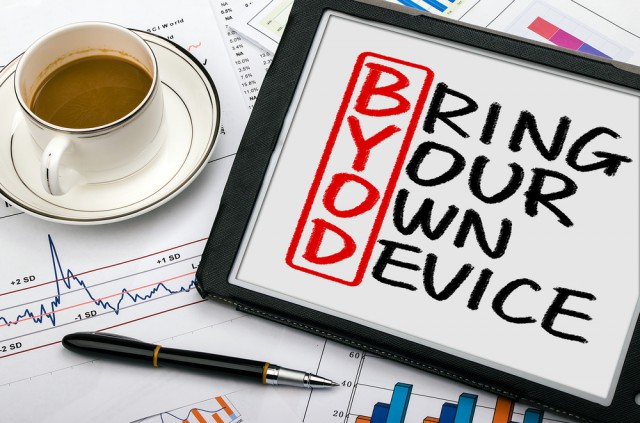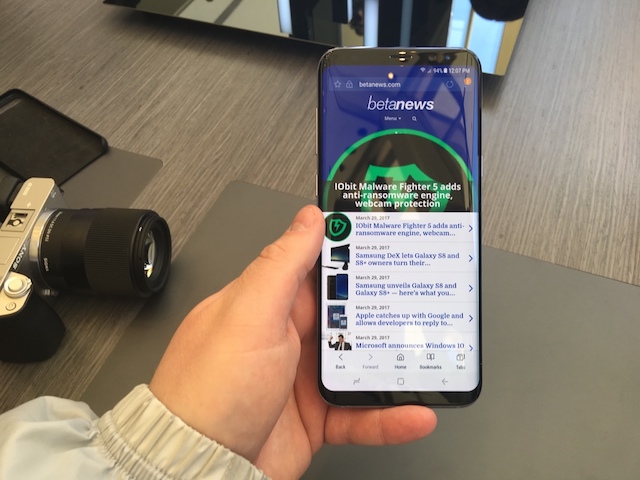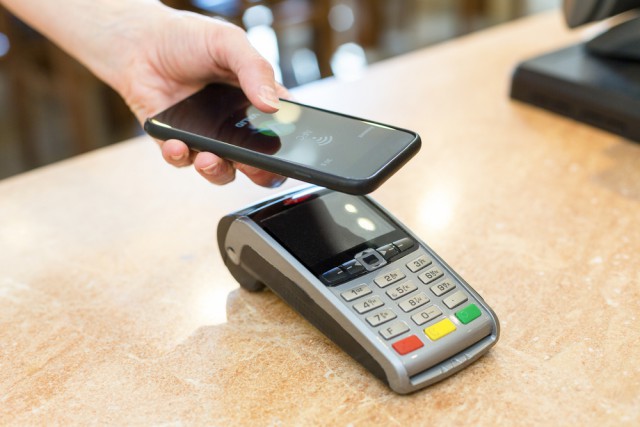
Enterprises want mobile apps that can improve productivity
Most businesses have adopted some kind of mobile strategy and the focus now is on the positives that mobility programs can deliver.
New research for mobile application management provider Apperian finds that 43 percent of respondents listed improved productivity as their primary goal of enterprise mobile apps -- a 20 percent jump over 2016.

Mobile YouTube live streaming now available to channels with 1,000 subscribers
Back in February, Google opened up YouTube live streaming to channels with 10,000 or more subscribers. Just two months later, the company has slashed this requirement to just 1,000 subscribers.
But while the bar may have been lowered in terms of subscriber numbers, there are still a few hoops that would-be live streamers have to jump through. It does mean, however, that many more YouTubers will be able to stream their content live, so there will be a greater selection of content to consume.

New tool offers flexible feature delivery for mobile developers
Businesses are clamoring for up to date mobile apps, but in the past the approach has tended to be all or nothing, with no real way of testing new features on some users before rolling them out to everyone.
Mobile developer tool specialist Rollout.io is launching a new ROX by Rollout tool that gives mobile app developers the ability to selectively deliver new features to subsets of users and monitor the performance of those features, making intelligent, data-driven recommendations about further deployment.

Are bots set to replace apps for mobile commerce?
As the world has moved more towards using mobile platforms for eCommerce and accessing the web, many companies have been looking to shift away from apps towards more responsive technology delivered by bots.
But is this model the future? Mobile development company ROKO Labs has produced an infographic looking at the pros and cons of both approaches.

Why technology is key to managing mobile workforces
Workforces are increasingly mobile, but that presents a problem for businesses when it comes to controlling workloads.
Scheduling software specialist Skedulo and marketing company Column Five have produced an infographic showing how technology is key to managing field workers.

Jailbreaking puts mobile users at risk
Mobile users frequently stray from official app stores when looking for new mobile applications, putting themselves under increased risk from malware, ransomware and other malicious actors. This is according to a new report by RiskIQ, which says that users in the UK are a bit more "conservative," and a bit more on the safe side compared to mobile users in the US.
The report, entitled "Appsession: Is our appetite for mobile apps putting us at risk?" is based on a poll of 2,000 mobile users -- 1,000 in the UK and another 1,000 in the US.

Managing BYOD: Best practices
BYOD is dying. It’s not that people no longer bring devices to work. It’s that everyone brings their devices to work. Whether you use BYOx (bring your own everything) to describe this phenomenon or some other term, there are important concerns to be addressed.
For example, will you be providing devices to all employees, some employees (e.g., managers and executives) or no employees? How will user-owned devices connect to the network and how do you ensure personal and corporate data separation? What about company-owned devices and who owns, and thus has free access to, the data stored on them? And what happens when a device with company data or the ability to connect to the company network is stolen?

Yeah, you should buy Samsung Galaxy S8
If you are in the market for a new Android smartphone, you will undoubtedly consider Samsung. After all, the company makes some of the best smartphones running Google's mobile operating system. In fact, without Samsung, it can be questioned if Android would even be as popular as it is today.
Earlier today, the manufacturer officially unveiled the Galaxy S8 (and a larger "plus" variant). The world was excited for this announcement, as it is Samsung's first true flagship since the Note7 fiasco. You may be wondering if you should buy the new Galaxy smartphone, and I have a very simple answer for you. Yes. Buy it. Pre-order it ASAP.

Consumers are ready for chatbots but companies aren't using them
The majority of consumers are comfortable talking with a chatbot yet only a fraction have engaged with one, according to a new report.
The study by mobile engagement specialist Vibes shows that over 60 percent of consumers would feel comfortable talking with a chatbot, yet only 22 percent have actually done so.

Employees are a major security risk, say IT pros
Almost a third of companies have suffered either data loss or a security breach because their employees use mobile technologies to work. This is according to a new report by Apricorn. The company polled 100 IT decision makers in the UK for the report.
Almost half (44 percent) expect mobile workers to expose their company’s data to risks of breaches and theft. Nearly half of respondents also agree that employees are the biggest security threat to their company.

Mint SIM delivers mobile for the cord-cutting generation -- 20 percent discount for BetaNews readers
Choosing the right mobile plan can be a minefield, requiring you to balance your needs for voice, texts and data against the performance of the service provider and the monthly costs.
US company Mint SIM is seeking to shake things up with a phone service for today's agile, digitally savvy generation. It offers a model that is platform agnostic and not tied to a particular phone or OS.

Security concerns hold back mobile payment adoption
Businesses and consumers recognize the benefits of mobile payments, but worries over security are holding back adoption according to a new report.
The study by Oxford Economics interviewed 2,000 consumers and 300 business executives and finds that 62 percent of consumers say mobile money enhances their buying experience, and 72 percent of executives say mobile payments can boost their sales.

Millennials and deskless working drive enterprise mobile investment
The rise of mobile-savvy millennials playing a greater role in the workforce and deskless workers receiving more attention means enterprises are focusing more on mobile applications to drive meaningful productivity gains.
This in turn has meant investors taking a greater interest in technology companies that are aiming their products at the enterprise mobile sector.

Mobile app use could boost charity giving
We're all spending more and more via mobile apps, and giving to charity could be the next area to benefit from the shift to mobile payments.
A new study carried out by social payment app Moneymailme finds that 72 percent of 18-25 year-olds would give to charity via a mobile app if given the chance. 48 percent of this generation believe physical money will be obsolete within 20 years so the ability to donate via apps will become key.

Enterprises with heavy mobile use are more profitable
There’s a new research report that says companies whose employees use mobile devices for multiple things are more productive than those with limited usage. It was commissioned by Synchronoss and conducted by Sapio Research.
The report says that 38 percent of enterprises use mobility solutions for basic tools like email and calendar. Such enterprises are 15 percent less productive and almost a third (29 percent) less profitable than those with more advanced mobile capabilities.
